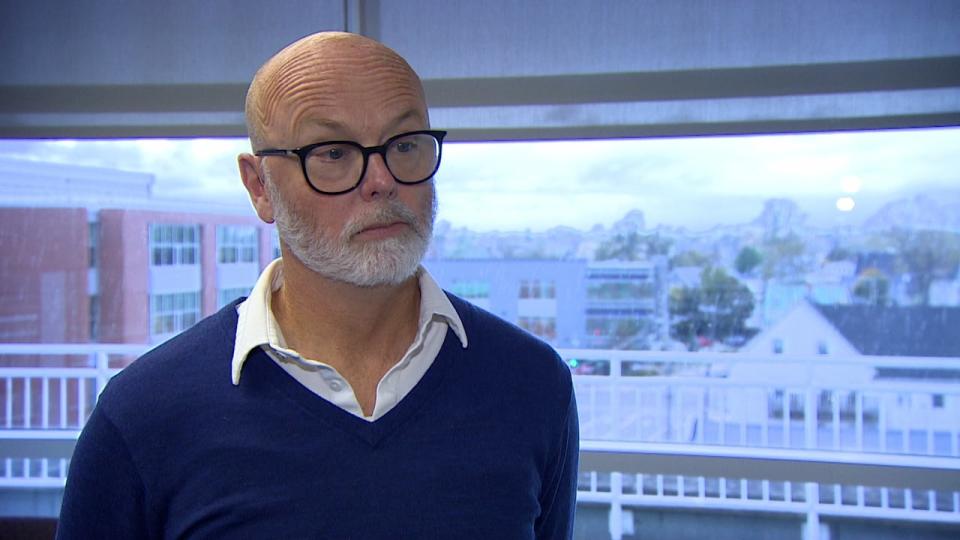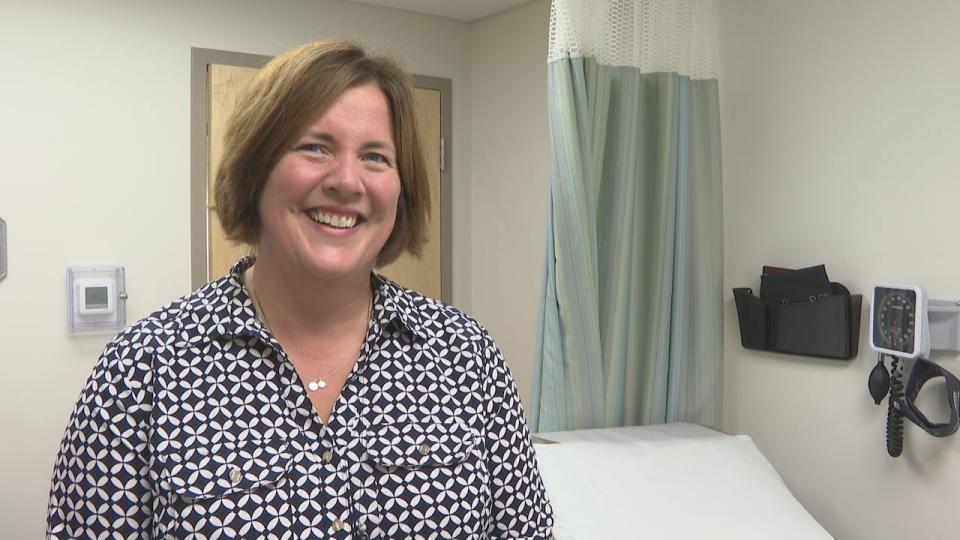Health P.E.I. wants more responsibility for doctor recruitment — and now they have it

When emergency room closures and other problems with P.E.I.'s health-care system arise, the blame often falls on Health P.E.I., says its CEO Dr. Michael Gardam.
He said he and other doctors and staff "lie awake at night worrying" about the health-care system and what will happen if another doctor decides to close their office.
So it only makes sense that they take a larger role in solving those issues, Gardam said.
"We have all of that stress operationally. The number one tool that we have to make a lot of that go away is to hire more doctors and historically I have not had responsibility for it," he said.
"So if you wrap your head around that, everybody's shaking Health P.E.I. saying, 'Fix it.' And I'm saying, 'I don't have responsibility for that to fix it.'"
Now, Health P.E.I. does have more of that responsibility.

Dr. Michael Gardam says it's important for Health P.E.I. to have greater responsibility in recruiting doctors to the Island in trying to fix some of the challenges facing the health-care system. (Shane Hennessey/CBC)
As of Nov. 1, the Medical Society of P.E.I. will no longer play a role in recruiting doctors to the province, leaving the task of filling the Island's 43 physician vacancies to Health P.E.I. and the Department of Health and Wellness.
In an email to members this week, medical society president Dr. Krista Cassell said the physicians recruiting physicians program it created in 2020 has come to an end, and they are stepping away to allow Health P.E.I. and the Department of Health and Wellness to collaborate on a recruitment program.
It's very important if we're going to have all the accountability for running our services we have to have the ability to hire people to fix some of those problems. — Dr. Michael Gardam
She said the society "has been proud of its contributions, including helping to recruit 81 physicians" throughout the three-year partnership with government.
Where the partnership was not successful, she said, "was in creating more cohesion between the physician hiring and onboarding process and having the desired influence in addressing recruitment barriers."
One of those barriers, according to Health PE.I., was the fact that the agency which employs doctors — Health P.E.I. — has played a minimal role in hiring them.
Gardam said the Department of Health and Wellness will visit medical schools and host events, and Health P.E.I. will "get into the nuts and bolts about what the job would look like, who they would work with, where they would live."

Dr. Krista Cassell, president of the Medical Society of P.E.I., says she proud of the work the physicians recruiting physicians program has done over the last three years. (Sheehan Desjardins/CBC)
Recently, the Department of Health and Wellness told MLAs there's been a net influx of doctors into P.E.I.'s health-care system over the past three years, but it hasn't been enough to keep up with patient loads.
When the physicians recruiting physicians program launched in 2020, there were about 14,000 people on the patient registry. Currently, there are more than 34,000.
Over that time, P.E.I.'s population has grown by about 15,000.
New role for chief recruiter
The person who was the chief recruiter under the old program, Dr. Megan Miller, is taking on a new one-year contract to work for the Department of Health and Wellness to support its doctor recruitment efforts.
The department has also hired a new physician recruitment co-ordinator.
And Health P.E.I. is in the process of developing its own recruitment leaders, said Gardam, who is leaving the CEO position at the end of March.
"Two years from now, when you go to the CEO and say, 'Why aren't you recruiting?' the CEO is going to have to say, 'Well, our own team that's doing the recruiting, this is what they found.' So to me, it's very important if we're going to have all the accountability for running our services we have to have the ability to hire people to fix some of those problems."


